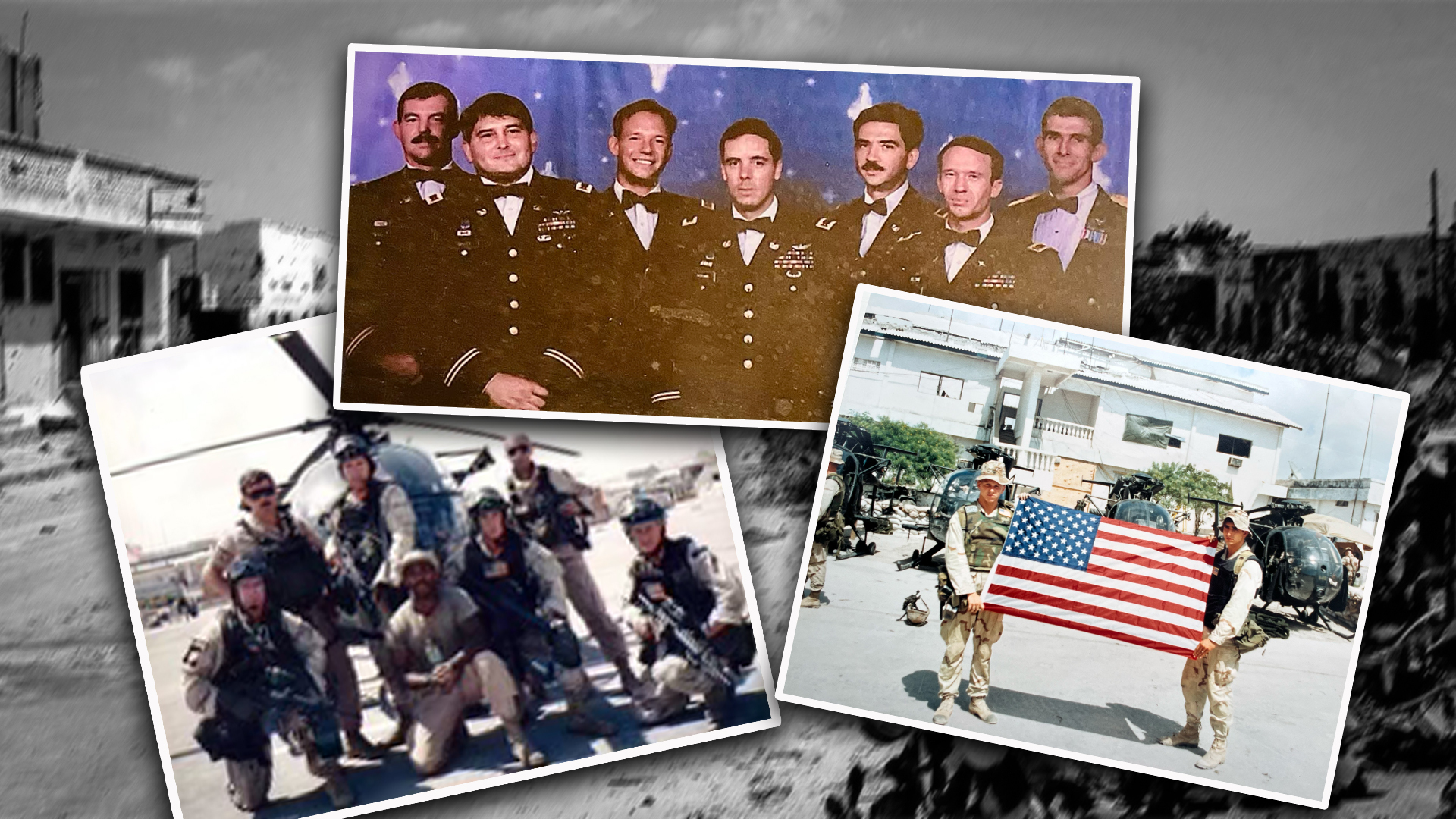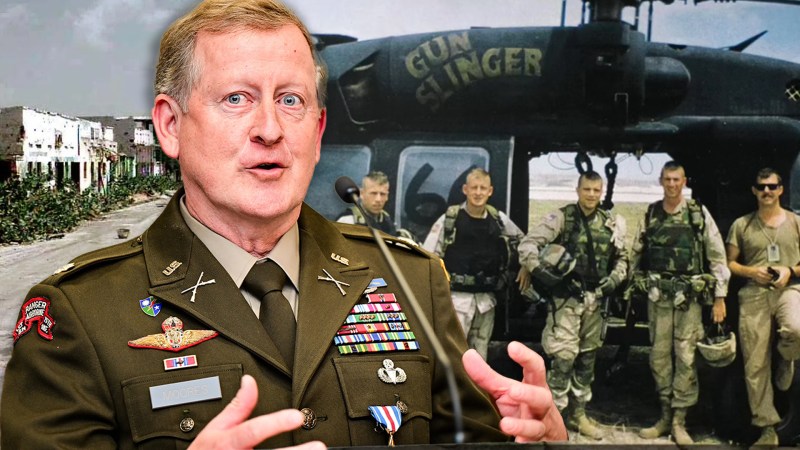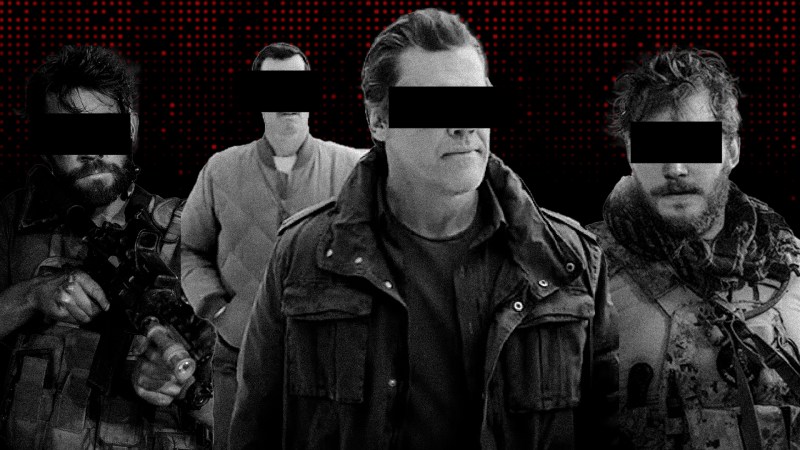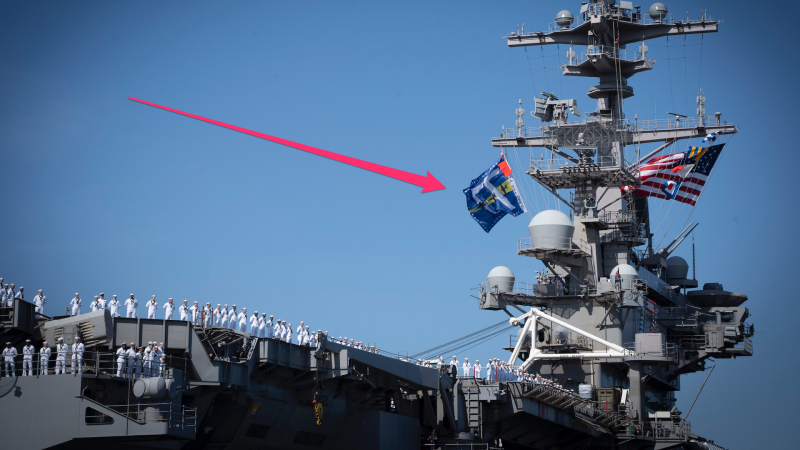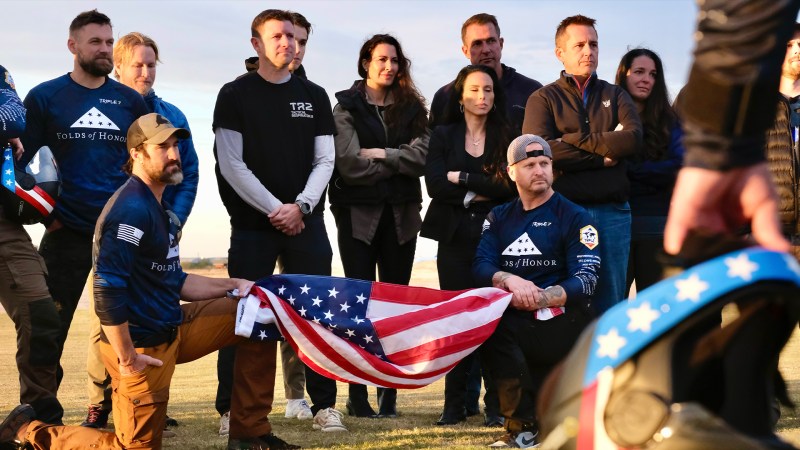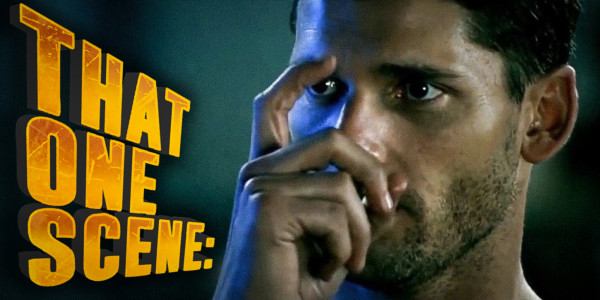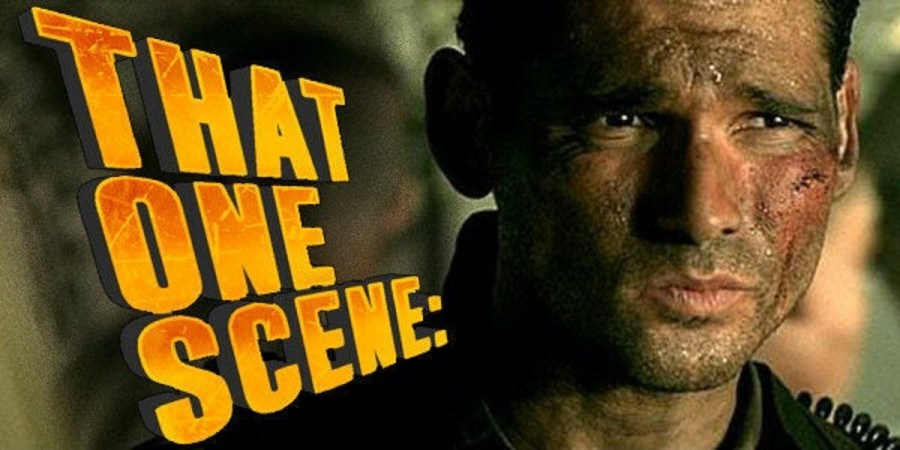The Battle of Mogadishu, known in Somalia as the Day of the Rangers and better known in America as the “Black Hawk Down” battle, took place 30 years ago today. It is one of the bloodiest single battles in U.S. special operations history, with 18 American service members from the 160th Special Operations Aviation Regiment, 75th Ranger Regiment, and a special mission unit making the ultimate sacrifice that day.
The battle occurred on Oct. 3-4, 1993, as a part of Operation Gothic Serpent. The U.S. Joint Special Operations Command deployed personnel under Task Force Ranger to Somalia to kill or capture warlord Mohamed Farrah Aidid, who was wanted for planning attacks on and killing United Nations representatives supplying clean water and food to the area.
Members of Task Force Ranger overcame the challenges of fighting an entire city, successfully capturing two of Aidid’s lieutenants despite not having the advanced tools and technology special operations forces have today. But 30 years later, what do the men who fought that battle still think about? We talked to three TF Ranger veterans to find out.
Brad Thomas
3rd Battalion, 75th Ranger Regiment
Thomas was assigned to 3rd Battalion, 75th Ranger Regiment, during Operation Gothic Serpent. He would go on to serve in a special mission unit for another 12 years. After retiring in 2010, he returned to his lifelong passion for music and formed the band Silence and Light with friends who also served in a variety of roles in the military.
“Heading into that day and into that mission — It was already kind of an oddball day,” Thomas said. “From being on the beach and thinking it’s a day off and just not even really having our head in the game, to hurry up, get back here. To ‘Okay, stand down,’ to ‘Okay, now we’re gonna go.’ We got the word to launch, and everything is history from there.”
Subscribe to Task & Purpose Today. Get the latest military news and culture in your inbox daily.
One of Thomas’ takeaways was how compartmentalized the different units were during the battle because the Rangers didn’t have enough radios for every man on the manifest. Thomas went on to serve at the highest levels of special operations, where he benefited from the use of better technology that developed over the course of decades at war, and better leadership that only comes from decades of war.
During Operation Gothic Serpent, he said that for most of the battle, he didn’t know what they were doing besides surviving. For example, Thomas’s element was ambushed repeatedly as they drove around Mogadishu; he didn’t know they were tasked with picking up Todd Blackburn, a Ranger who survived a 90-foot fall from a hovering helicopter after losing his grip on a fast rope.
Despite the challenges and lack of communication, the Rangers accomplished their mission.
“That, to me, is one of the more impressive parts of the story,” Thomas said. “Having some context and some perspective after continuing to serve, I look back and think, what a tremendous job these young guys did.”
Norman Hooten
A special mission unit
Hooten enlisted in the Army in 1980, serving in 5th Special Forces Group before being selected for a special mission unit in 1987. He retired as a Master Sergeant in 2001. Hooten served everywhere from South and Central America to the Balkans but is widely known for his service in Operation Gothic Serpent.
Ridley Scott’s 2001 military drama, “Black Hawk Down,” placed a lot of focus on Hooten, who was portrayed by actor Eric Bana in the film. Though the movie isn’t historically accurate, it tells the tale of the strong brotherhood the guys who fought through Mogadishu formed. But for Hooten, that brotherhood is even stronger today than it was 30 years ago.
“To be honest with you, a lot of memories from that particular battle have started to fade in the memory a little bit, and some of them run together. I think every year we get closer as a group,” Hooten said. “While the operation starts to fade into memory, the relationships you’ve built there just get stronger over the years. […] The relationships that we built and forged on that day become stronger and stronger as time goes by.”
Every October, Operation Gothic Serpent veterans get together for different memorial events, and for Hooten, seeing all of the warriors he served alongside reaching old age hits home.
“Now I get back together with the guys and see them together in a room, now as old men. I just look at them, and it makes me smile. People could look at this group of guys who appear very unassuming. But, if those people only knew what they had been through, not only on October 3 but the things that happened after. It just warms my heart. It’s a great personal honor to be part of that group of guys.”
Mike Durant
160th Special Operations Aviation Regiment
Durant retired at the rank of Chief Warrant Officer 4 after 22 years in the Army, 13 of those years in the 160th SOAR, accumulating over 3,700 flight hours. He was integral to advancements in tactics and technology in his unit, including the armed Direct Action Penetrator helicopter armed with mini-guns, 30mm cannon, rockets, and Hellfire missiles. This modified helicopter has saved the lives of countless special operations personnel in the war on terror.
Like Hooten, he is well known because of the Hollywood movie depicting his service in the operation, but also his capture by the Somalian militia. Durant said he benefited from speaking about his experience soon after his recovery, which helped him process everything that happened, while others who left the military shortly after the operation struggled with their experiences.
The anniversaries always bring back bad memories though, things Durant doesn’t want to think about daily. Reuniting with the guys he served with during the operation always helps with finding out about new details, but he does not dwell on the mission either. Durant said he does not “stare” when thinking back to those fateful days to avoid compounding the effects of the tragedy that took place.
“It’s awful that not everyone survived, but we can’t change that,” Durant said. “It’s furthering the impact of the tragedy if you don’t carry on with your life and live it to the fullest. I consider the last 30 years a gift. I mean, it’s basically half my existence that I could have easily lost, and I got it, and I don’t want to squander that.”
All three special operations veterans agreed about how the operation affected the future of special operations. Hooten said that he used knowledge passed onto him by Vietnam War veterans to survive the events that followed the shootdown of the two Black Hawks on October 3. Durant took it a step further and said both the good and bad lessons learned during the operation prepared service members for future battles that would happen in similar settings.
The heroes of Operation Gothic Serpent
Several American service members were killed during the Battle of Mogadishu or did not survive their wounds sustained during the battle. Their sacrifices will not be forgotten.
- Master Sgt. Gary Ivan Gordon
- Sgt. 1st Class Randy Shughart
- Staff Sgt. Daniel Darrell Busch
- Sgt. 1st Class Earl Robert Fillmore, Jr.
- Master Sgt. Timothy Lynn Martin
- Sgt. 1st Class Matthew Loren Rierson
- Cpl. James “Jamie” E. Smith
- Spc. James M. Cavaco
- Sgt. James Casey Joyce
- Cpl. Richard “Alphabet” W. Kowalewski, Jr.
- Sgt. Dominick M. Pilla
- Sgt. Lorenzo M. Ruiz
- Staff Sgt. William “Wild Bill” David Cleveland, Jr.
- Staff Sgt. Thomas “Tommie” J. Field
- Chief Warrant Officer 4 Raymond “Ironman” Alex Frank
- Chief Warrant Officer 3 Clifton “Elvis” P. Wolcott
- Chief Warrant Officer 3 Donovan “Bull” Lee Briley
- Sgt. Cornell Lemont Houston, Sr.
- Pfc. James Henry Martin, Jr.
The latest on Task & Purpose
- 101st and 82nd Airborne Division soldiers deploying to Eastern Europe
- Have you seen me? All the best ‘Missing F-35’ memes
- Marine Corps searching for F-35 after pilot ejects in South Carolina
- Senate bypasses Tuberville on Joint Chief nominations for Brown, George
- Search for missing Marine F-35B finds debris field

